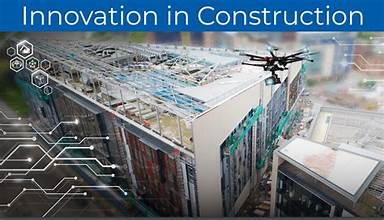The Mauritian construction industry is experiencing a wave of innovation, driven by a growing demand for sustainable, efficient, and resilient buildings. Local contractors are no longer simply laying bricks and mortar; they are embracing cutting-edge technologies and materials to shape the future of the built environment.
This article delves into some of the most exciting trends transforming the construction landscape in Mauritius:
1. Sustainable Solutions: Environmentally conscious construction is at the forefront, with contractors utilizing recycled materials, prefabricated green components, and energy-efficient designs. Timber, once an underutilized resource, is gaining traction with companies like Timber Works Mauritius showcasing its structural potential and aesthetic appeal. Additionally, solar panels and rainwater harvesting systems are becoming increasingly common, reducing reliance on traditional energy sources and promoting water conservation.
2. Embracing Technology: Construction is no longer a manual process. Building Information Modeling (BIM) is revolutionizing project planning and execution. This 3D modeling software allows for virtual walkthroughs, clash detection, and real-time cost estimating, leading to improved efficiency, reduced waste, and better collaboration between architects, engineers, and contractors. Additionally, drones are used for surveying, progress monitoring, and safety inspections, offering valuable aerial perspectives and promoting worker safety.
3. Modular Construction Gains Ground: Prefabricated, modular construction is gaining popularity due to its faster build times, cost-effectiveness, and reduced on-site waste. This method involves constructing building modules off-site in controlled environments, ensuring higher quality and precision. Companies like REHM-Grinaker are incorporating modularity into their projects, offering clients shorter project timelines and consistent quality.
4. Innovation in Materials: Traditional materials are being challenged by new, innovative options. 3D-printed concrete is being explored for its potential to create complex structures with minimal waste. Self-healing concrete, infused with bacteria that repair cracks, is also being tested, aiming to increase the lifespan and reduce maintenance costs of structures. These advancements promise a more durable and sustainable future for construction.
5. Focus on Skills and Training: As technology reshapes the industry, the need for skilled workers equipped with the latest knowledge and tools becomes crucial. Construction companies are investing in training programs to bridge the skills gap and ensure their workforce can adapt to the evolving landscape. Additionally, universities and technical institutions are introducing courses focusing on sustainable construction practices and new technologies, preparing the next generation of builders for the future.
Looking Ahead: The Mauritian construction industry is on an exciting trajectory. By embracing innovation, sustainability, and technological advancements, local contractors are contributing to building a more resilient, efficient, and environmentally responsible future for the island nation. As these trends continue to evolve, we can expect to see even more groundbreaking projects shaping the Mauritian landscape in the years to come.
Manser Saxon Contracting Mauritius is a multi-discipline subcontracting construction company offering a diverse selection of services to the building and allied industry in Mauritius, the Indian Ocean region and beyond



